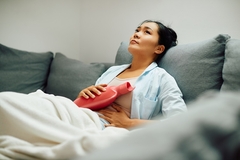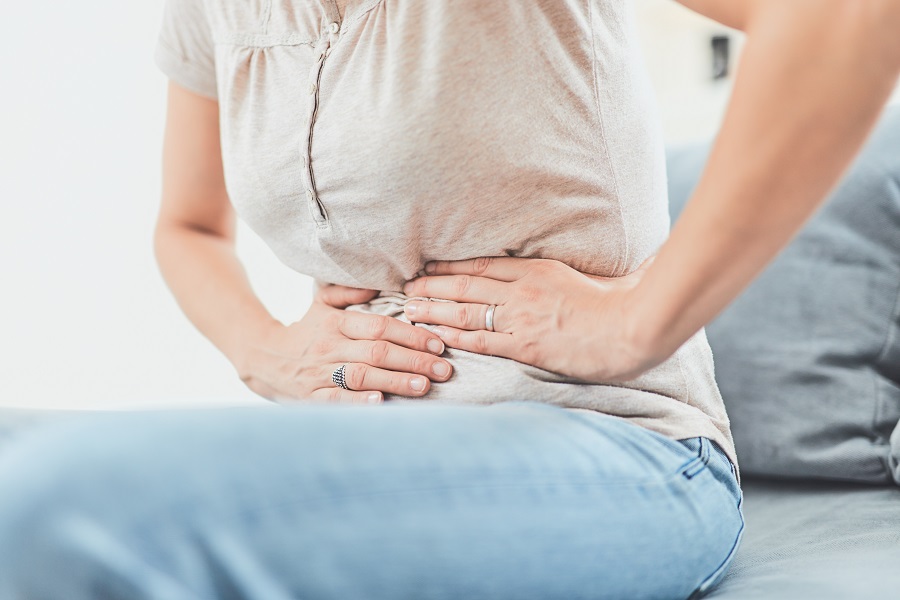Hidden burden: Experts shine light on prevalent gut health issues among menopausal women
Key takeaways
- A new study found that the majority (94%) of menopausal women participants reported digestive health symptoms.
- Common symptoms like bloating and constipation are often linked to hormonal changes during this time.
- Over half of the women who sought professional support considered the care they received to be inadequate.

A new study focused on gut health during menopause shines light on the prevalence of digestive issues and related stomach pain among women during this transition. Despite symptom burdens, formal diagnoses and effective treatment are still limited, the researchers underscore.
“Digestive health problems at midlife are often brushed aside, yet our research shows they are both widespread and impactful for women,” says Nigel Denby, lead author and a registered dietitian based in London, UK.
“By raising awareness of this hidden burden, we hope to encourage healthcare professionals to ask the right questions, validate women’s experiences, and work toward better support and treatment options during menopause.”
Most common digestive health issues
Gastrointestinal symptoms among women are often attributed to other issues, when in fact they are attributed to hormone changes experienced during perimenopause and menopause.
Digestive complaints like bloating, gas, stomach pain, and constipation are common during menopause, note the study authors.
Almost 600 women aged 44 to 73 participated in the study, 94% of whom reported digestive health symptoms. Bloating (77%), constipation (54%), stomach pain (50%), and acid reflux (49%) were the most common.
 Menopausal women have statistically significant links to specific irritable gut symptoms, particularly bloating and stomach pain.Despite the high incidence of gut problems, only 33% of women had received a formal diagnosis of irritable bowel syndrome (IBS). The majority (82%) experienced the onset or worsening of symptoms at perimenopause or menopause.
Menopausal women have statistically significant links to specific irritable gut symptoms, particularly bloating and stomach pain.Despite the high incidence of gut problems, only 33% of women had received a formal diagnosis of irritable bowel syndrome (IBS). The majority (82%) experienced the onset or worsening of symptoms at perimenopause or menopause.
“These results are noteworthy because they demonstrate how many women are experiencing frequent gastrointestinal symptoms and either not seeking care or receiving what they perceive to be inadequate care,” says Dr. Stephanie Faubion, medical director for The Menopause Society.
“Symptoms like hot flashes, night sweats, and mood changes are more widely recognized as symptoms of menopause, so it can be easy to overlook or underestimate the significance of digestive issues that may be happening at the same time.”
Need for clinical awareness
Women undergoing menopause had statistically significant links to specific irritable gut symptoms, particularly bloating and stomach pain. Over half experienced daily or weekly symptoms, with 55% reporting a significant or regular impact on their quality of life.
Around half (53%) of these women had sought professional support, but 58% of them considered this care to be inadequate. Most (89%) tried self-management strategies, such as dietary changes, stress management, and supplements.
The researchers underscore the need for increased clinical awareness and further research into the intersection between digestive health and menopause.
Results of the study are presented at the ongoing 2025 Annual Meeting of The Menopause Society in Orlando, Florida, US (October 21–25).
In other headlines featuring dietary interventions for menopause relief, ProBiotix Health will be presenting its range of probiotics for menopause at the upcoming CPHI trade show in Frankfurt, Germany (October 28–30), under its YourBiotix brand.
Meanwhile, a recent study cautioned that women seeking menopause relief through commercial hormone testing and unverified supplements should be mindful of the validity of these services. The authors flagged the rise in routine hormone panel testing for evaluating menopausal symptoms, which often costs hundreds of dollars.











